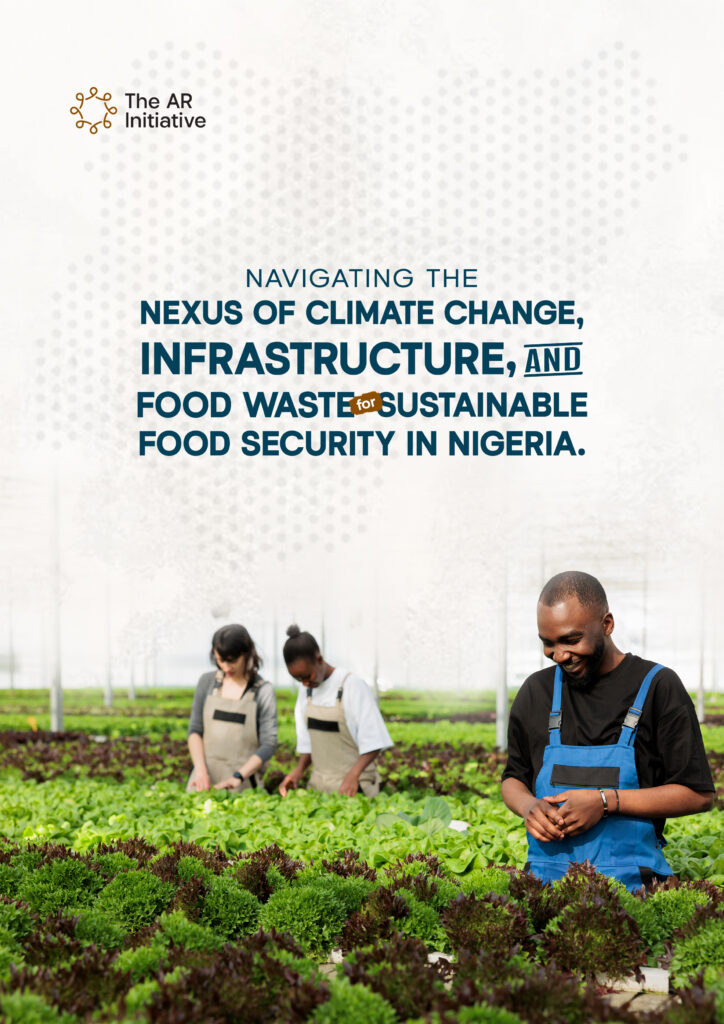 This comprehensive report investigates the intricate challenges at the intersection of climate change, inadequate infrastructure, and food waste, contributing to the alarming rise of food insecurity in Nigeria. Spanning the entire food value chain, from production to consumption, the report underscores the profound impact on Nigeria’s food security and on its capacity to reach the Sustainable Development Goals (SDGs). The disproportionate influence of climate change in Africa, compounded by geopolitical challenges, is a significant factor exacerbating the negative consequences on Nigeria’s food value chain, hindering progress toward Sustainable Development Goal 2 and intensifying food insecurity.
This comprehensive report investigates the intricate challenges at the intersection of climate change, inadequate infrastructure, and food waste, contributing to the alarming rise of food insecurity in Nigeria. Spanning the entire food value chain, from production to consumption, the report underscores the profound impact on Nigeria’s food security and on its capacity to reach the Sustainable Development Goals (SDGs). The disproportionate influence of climate change in Africa, compounded by geopolitical challenges, is a significant factor exacerbating the negative consequences on Nigeria’s food value chain, hindering progress toward Sustainable Development Goal 2 and intensifying food insecurity.
Three core sections delve into sustainable solutions in crop production, the transformation of food processing, and securing Nigeria’s food future, providing a holistic understanding of the interconnected challenges and advocating for collaborative, innovative approaches aligned with multiple SDGs. The report’s findings expose the interlinked challenges facing Nigeria’s food security, offering a roadmap for comprehensive and sustainable solutions that align with the broader goals of sustainable development.
Key findings include that Nigeria’s food insecurity challenges result from ecological and infrastructural issues that result in a high drought risk, high crop loss, food spoilage across the supply chain, low availability of food products, and increased consumer prices. Results also demonstrate that Nigeria’s food sector falls behind international standard averages due to ubiquitous limitations in transportation networks, irrigation infrastructure, and storage facilities.
The report concludes that to meaningfully address the implications of these findings and improve food insecurity in the nation, concerted and collaborative efforts between stakeholders capable of influencing the food supply chain must move forward.
The report’s key recommendations include measures that encompass technological innovations, climate-smart agriculture, and collaborative efforts to address the complex nexus of climate change, infrastructure deficits, and food waste, with the ultimate aim of promoting a resilient and sustainable food supply chain in Nigeria.
Specifically, immediate remedial actions include implementing widespread educational outreach amongst small farmers to democratise and empower them to navigate the various influences impacting their food supply chain. This must be done in concert with well-considered, mid-term planning of infrastructural upgrades, including transportation networks and food storage and processing facilities. All of this must be accomplished with a long-term focus on innovating the food processing sector as a whole through strategic investment and the adoption of available and emerging technologies throughout the food supply chain.
Access the full report here